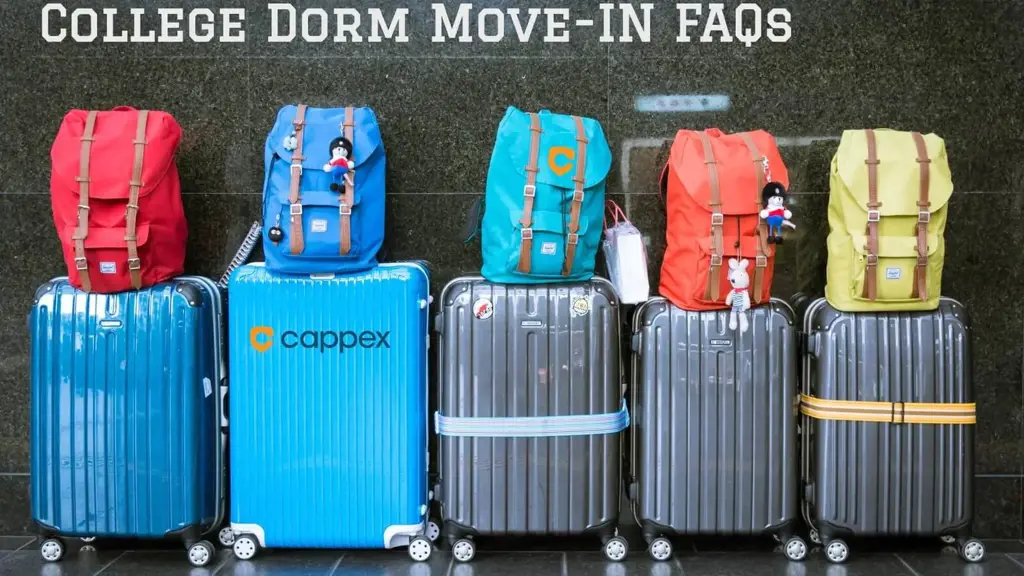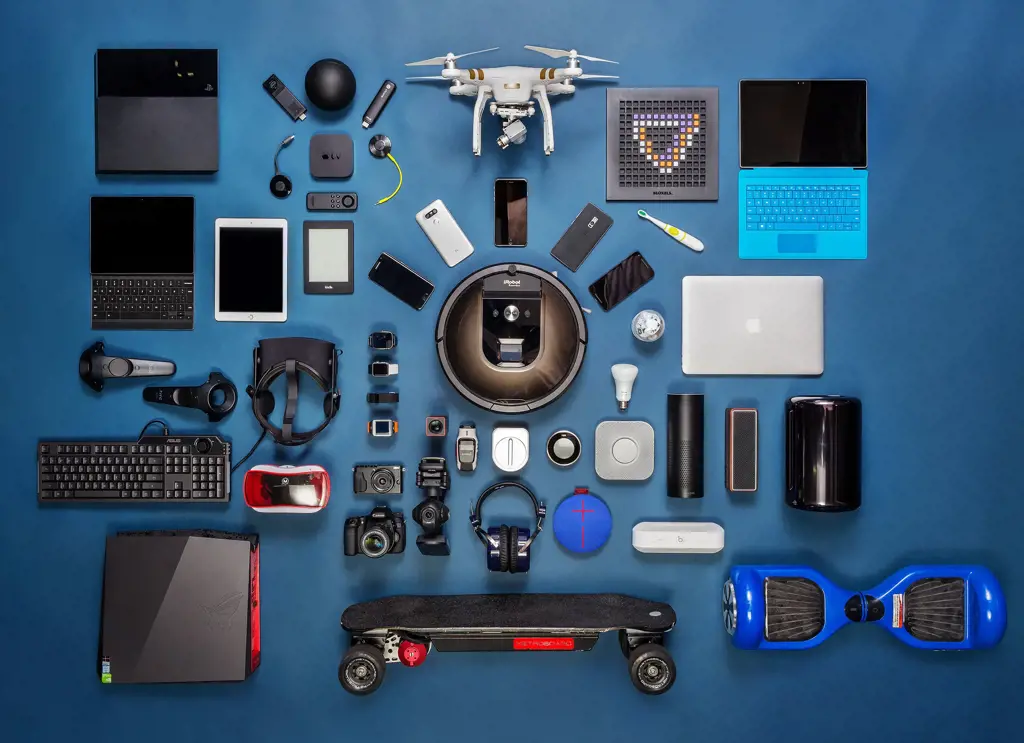
Moving into a university dorm can be an exciting yet overwhelming experience. With so much to remember and organize, it's easy to feel like you might forget something important. That's why having a checklist for packing is essential. Whether you're a first-year student or a seasoned campus dweller, this ultimate checklist will ensure that you have everything you need for a smooth move-in day. From bedding essentials to organizational tools, this guide covers it all. So grab a pen and get ready to check off each item as you pack - it's time to make move-in day a breeze!
What You'll Learn
- What are the essential items to pack for move-in day at university?
- Are there any specific items that are often forgotten, but are important for university move-in?
- How much clothing should I pack for university move-in?
- Are there any specific electronics or gadgets that are recommended for university move-in?
- Are there any items that are not allowed or restricted in university dorms or residences that I should avoid packing?

What are the essential items to pack for move-in day at university?

Moving away to university is an exciting and significant milestone in a student's life. It marks the start of a new chapter filled with opportunities and personal growth. As move-in day approaches, it is essential to be well-prepared and organized to ensure a smooth transition. Here are some essential items to pack for move-in day at university.
Bedding and Linens:
Sleep is crucial for academic success, so it's vital to bring your bedding and linens. Pack your sheets, pillows, comforter, and mattress pad to make your dorm or apartment a cozy and comfortable space. Additionally, don't forget to include towels, hand towels, and washcloths for personal hygiene.
Kitchen and Cooking Essentials:
If you're living in a dorm with a communal kitchen or an apartment with a private one, it is necessary to pack some kitchen and cooking essentials. Items like plates, bowls, glasses, mugs, utensils, pots, and pans will be essential for preparing meals. Additionally, consider bringing a microwave, mini-fridge, and a coffee maker to make your life more convenient.
Toiletries and Personal Care Items:
Stock up on toiletries and personal care items to keep yourself fresh and clean. Don't forget items such as shampoo, conditioner, body wash, toothpaste, toothbrush, shaving cream, razors, and any other personal care products you rely on. Having these essentials on hand will prevent any last-minute runs to the store.
School Supplies:
Being prepared for your classes is crucial, so ensure you have all the necessary school supplies. Bring items such as notebooks, pens, pencils, highlighters, folders, a backpack, a calculator, and a planner to keep track of assignments and deadlines.
Clothing and Laundry Supplies:
Pack enough clothing to last you at least a week between laundry days. Consider the weather conditions in your new location and pack accordingly. Bring a mix of casual and formal outfits suitable for various occasions. Additionally, don't forget to pack laundry detergent, fabric softener, hangers, and a laundry bag or hamper to keep your clothes organized and clean.
Electronics and Entertainment:
Living in a digital age, it's crucial to bring the necessary electronics and entertainment items. This could include a laptop, tablet, smartphone, headphones, chargers, and any other electronics you rely on for studying or leisure activities. Don't forget to also bring a power strip and extension cords to ensure you have enough outlets for all your devices.
Basic Tools and Safety Supplies:
Having some basic tools can come in handy when you need to assemble furniture or make small repairs. Pack a screwdriver, hammer, pliers, and a set of Allen keys. Additionally, it's essential to have some safety supplies, such as a first aid kit, flashlight, batteries, and a smoke detector, to ensure your well-being in case of emergencies.
Personal Touches:
Lastly, don't forget to bring some personal touches to make your new space feel like home. This could include photos of family and friends, artwork, posters, or any items that hold sentimental value. Adding these personal touches will help you feel more settled and comfortable in your new environment.
In conclusion, move-in day at university can be overwhelming, but with careful planning and packing, it can also be an exciting and smooth transition. Remember to bring essential items such as bedding and linens, kitchen and cooking essentials, toiletries and personal care items, school supplies, clothing and laundry supplies, electronics and entertainment, basic tools and safety supplies, and personal touches to make your new space feel like home. By being well-prepared, you'll be ready to embark on this new chapter with confidence and ease.
Essential Items to Include in Your Fishing Vest for a Successful Fishing Trip
You may want to see also

Are there any specific items that are often forgotten, but are important for university move-in?

When it comes to moving into university, there are many things to remember and pack. It's easy to forget some essential items in the chaos of moving, so it's important to have a checklist to ensure you don't miss anything important. Here are some commonly forgotten items that you should consider packing for your university move-in:
- Surge protector: While many dorm rooms have a limited number of outlets, a surge protector will give you extra sockets to charge your devices and power your electronics. This is especially important if you have multiple devices like a laptop, phone, tablet, and other gadgets.
- Extension cords: Similar to surge protectors, extension cords can be beneficial for reaching outlets that may be far away from your dorm room furniture. This will allow you to position your devices and appliances more conveniently.
- Bedding extras: You may think you only need one set of bedding, but it's always a good idea to have extra sheets and pillowcases. Accidents happen, and you don't want to be caught without clean bedding in case of a spill or when your original set is in the wash.
- Laundry supplies: Don't forget essentials like laundry detergent, fabric softener, stain remover, and a laundry bag or hamper. It's easy to forget these items when you're focused on packing clothes, but they are essential for keeping your wardrobe clean and fresh.
- Kitchen essentials: If you have access to a communal kitchen or have appliances in your dorm room, consider packing some basic kitchen supplies like utensils, plates, bowls, and pots and pans. This will allow you to cook simple meals and make the most of your food options at university.
- Basic cleaning supplies: Keeping your dorm room clean is important for your health and wellbeing. Make sure to pack some all-purpose cleaner, disinfectant wipes, and a vacuum or broom to keep your living space tidy.
- First aid kit: Accidents can happen at any time, so having a basic first aid kit on hand is essential. Include items like band-aids, antiseptic ointment, pain relievers, and any necessary medications you may need.
- Indoor slippers: Walking around your dorm room or communal areas barefoot isn't the most hygienic option. Pack a pair of indoor slippers to keep your feet clean and comfortable while indoors.
- Command hooks and strips: Most universities have strict rules about nails and screws in the walls, but command hooks and strips are a great alternative. They can be used for hanging pictures, posters, and other decorations without damaging the walls.
- Personal documents and identification: It's important not to forget essential documents like your passport, driver's license, student ID card, and any other identification you may need. These documents may be required for various university processes, such as registration or opening a bank account.
While this list is not exhaustive, it covers some of the commonly forgotten items that are important for university move-in. Make sure to personalize your checklist based on your specific needs and the requirements of your university. Planning ahead and being organized will help ensure a smooth and stress-free transition to university life.
The Essential Packing List for an Unforgettable Sedona Adventure
You may want to see also

How much clothing should I pack for university move-in?

When moving into university, it can be difficult to determine how much clothing to pack. On one hand, you want to be prepared for any situation or event that may arise. On the other hand, you don't want to overpack and bring unnecessary items that will take up space in your dorm room. Here are some tips to help you decide how much clothing to bring for university move-in.
- Check the weather: Before packing your clothing, take a look at the weather forecast for the area where your university is located. This will give you a sense of what to expect in terms of temperature and precipitation. Pack clothing accordingly, making sure to include items that can be layered for versatile outfits.
- Consider the duration: Think about how often you plan to do laundry while at university. If you have access to laundry facilities and don't mind doing laundry frequently, you can pack a smaller number of clothing items. However, if you prefer to do laundry less often, you may want to pack more clothes to last you through longer periods.
- Follow a capsule wardrobe approach: A capsule wardrobe consists of a limited number of versatile clothing items that can be mixed and matched to create multiple outfits. This approach ensures that you have a variety of outfit options while minimizing the overall number of clothing items you need to pack. Consider packing neutral-colored basics that can be easily dressed up or down with accessories.
- Consider the dress code: Take into account the dress code at your university and any events or activities you may be participating in. If your university has a strict dress code or if you plan on attending formal events, you may need to pack more formal wear. If your university has a more casual dress code, you can focus on packing comfortable and casual clothing.
- Pack for different seasons: If you will be at university for multiple seasons, consider packing clothing that can be layered and worn in different temperatures. This will allow you to transition your wardrobe as the weather changes without needing to pack entirely new sets of clothing.
Example of a clothing packing list for university move-in:
- Tops: 10-15 t-shirts, blouses, or shirts (mix of long and short-sleeve)
- Bottoms: 5-7 pairs of jeans, leggings, or pants
- Dresses/skirts: 2-3 versatile options for more formal occasions
- Outerwear: 2-3 jackets or sweaters
- Activewear: 2-3 sets of workout clothes
- Underwear and socks: Enough for at least a week, plus extras
- Shoes: 2-3 pairs for different occasions (comfortable sneakers, dress shoes, sandals/flip flops)
- Accessories: Scarves, hats, belts, and jewelry to accessorize and change up your outfits
- Sleepwear: 2-3 sets of pajamas or comfortable lounge wear
- Swimwear: 1-2 swimsuits if you have access to a pool or beach on campus.
Remember, this is just a rough guideline and you should adjust your packing list based on your personal preferences and needs. Don't forget to also pack essential items like toiletries, towels, and bedding. With these tips in mind, you'll be able to pack the right amount of clothing for university move-in without feeling overwhelmed or unprepared.
The Ultimate Guide to Packing for a Spring Vacation
You may want to see also

Are there any specific electronics or gadgets that are recommended for university move-in?

When it comes to preparing for university move-in, there are a few essential electronics and gadgets that you might want to consider bringing along. These items can enhance your living and studying experience, making your time at university more convenient and enjoyable. Here are some recommendations for electronics and gadgets that are often recommended for university move-in.
- Laptop or Tablet: One of the most important electronics to have for university move-in is a laptop or tablet. This device will serve as your primary tool for studying, writing papers, and staying connected with classmates and professors. Look for a device with decent processing power, a comfortable keyboard, and a long battery life to ensure that it can handle your academic workload.
- Printer: While many universities have printing facilities on campus, having a printer in your dorm room can save you time and money. You won't have to rush to the library or computer lab to print out assignments, and you can easily print readings and lecture notes from the comfort of your room. Look for a printer with wireless capabilities to make it even more convenient.
- Noise-Canceling Headphones: Living in a dorm room can be noisy at times, particularly if you have roommates or live in a building with thin walls. Noise-canceling headphones can help you concentrate on your studies and block out any distractions. They are also great for listening to music or watching movies without disturbing others.
- Portable Hard Drive: Depending on your field of study, you may accumulate a large amount of digital files throughout your time at university. It's essential to have a backup solution to protect your work and prevent any loss of important data. A portable hard drive allows you to keep your files safe and easily accessible, even if your laptop or computer crashes.
- Smart Speaker or Virtual Assistant: A smart speaker or virtual assistant, such as Amazon Echo or Google Home, can be a handy gadget to have in your dorm room. These devices can play music, set reminders, answer questions, and even control other smart devices in your room. They can make your daily routine more efficient and provide a bit of entertainment during your downtime.
- Extension Cord and Surge Protector: Since dorm rooms often have limited outlets, it's a good idea to bring along an extension cord and surge protector. These will ensure that you have enough outlets to power all your devices safely and prevent any damage from power surges.
- Portable Charger: With a full schedule of classes, extracurricular activities, and social events, you may find yourself constantly on the go. A portable charger can be a lifesaver when you're running low on battery and can't find an available outlet. Look for a portable charger with multiple USB ports and a high capacity to keep your devices charged throughout the day.
Remember, before purchasing any electronics or gadgets, check with your university's guidelines and the specific requirements of your program. Some universities may have restrictions on certain devices or provide recommendations for specific models. Additionally, it's important to consider your budget and prioritize the gadgets that will be most beneficial to your academic and personal needs at university.
Preparing for an Alaskan Summer: What to Pack for the Unpredictable Weather
You may want to see also

Are there any items that are not allowed or restricted in university dorms or residences that I should avoid packing?

Moving into a university dorm or residence is an exciting time for many students. It's the start of a new chapter in their lives, and they're eager to bring all their belongings with them. However, it's important to remember that there are certain items that may not be allowed or are restricted in these living spaces. It's essential for students to be aware of these restrictions to avoid any problems or complications.
One common item that is typically not allowed in university dorms or residences is pets. While many students may love the idea of having a furry friend to keep them company, most dorms have strict policies against keeping pets. This is because pets can be disruptive to other residents and may cause allergies or other health concerns. It's best for students to find alternate living arrangements if they want to have pets during their time at university.
Another item that is often restricted in dorms is cooking appliances. While some dorms may allow small kitchen appliances like microwaves or toasters, others may have restrictions on what is allowed. This is because cooking appliances can pose a fire hazard if not used properly. It's important for students to check with their university or residence hall for the specific guidelines on what cooking appliances are allowed.
In addition to pets and cooking appliances, there may be restrictions on other items as well. These can include candles, incense, or any other open flames. These items are not allowed in most university dorms or residences due to the fire risk they pose. It's important for students to find alternative ways to create a cozy atmosphere, such as using flameless candles or essential oil diffusers.
Weapons are another category of items that are typically not allowed in university dorms or residences. This includes firearms, knives, and other potentially dangerous weapons. These restrictions are put in place for the safety of all residents and to prevent any incidents from occurring. Students should always adhere to these rules and find alternative ways to ensure their personal safety.
While it's essential to be aware of items that are not allowed or restricted, it's also important to remember that every university or residence hall may have different rules and policies. It's crucial for students to familiarize themselves with the specific guidelines of their university or residence hall. This can typically be found in the student handbook or on the university's website. Additionally, reaching out to the housing office or residence hall staff can provide further clarification if needed.
In conclusion, there are certain items that may not be allowed or restricted in university dorms or residences. It's important for students to be aware of these restrictions to avoid any problems or complications. Some common restrictions include pets, cooking appliances, open flames, and weapons. Students should always check with their university or residence hall for the specific guidelines and seek clarification if needed. By following these rules, students can ensure a safe and enjoyable living experience during their time at university.
Tips for What to Do After Applying a Face Pack
You may want to see also
Frequently asked questions
When moving into university accommodation, it is important to bring the essentials such as bedding, toiletries, and kitchen supplies. You should also pack clothes suitable for all weather conditions and a variety of occasions. It is a good idea to bring any study materials or electronics you may need for your course. Don't forget important documents like ID, passport, or driving license. Additionally, personal items that make your new space feel like home, such as photos or decorations, can help make the transition easier.
While it is important to pack the essentials, there are some items that may not be allowed or necessary to bring. Most universities have guidelines on prohibited items such as candles, pets, or certain cooking appliances. It is also worth considering the amount of space you will have available in your accommodation and avoiding excessive amounts of furniture or belongings that may clutter your living area. Check with your university for a complete list of restricted items and to ensure you are in compliance with their guidelines.
The amount of clothing you should pack for university will depend on the climate of your new location, the availability of laundry facilities, and your personal preferences. It is a good idea to pack enough clothing for at least a week, including a mix of casual and formal attire. Don't forget to include clothing suitable for different types of weather, such as sweaters and raincoats. Keep in mind that you may have limited storage space in your accommodation and may need to rotate your wardrobe during the year.
Depending on your university accommodation, kitchen supplies may be provided or may need to be brought by students. It is important to check with your university before moving to determine what will be provided. If you need to bring your own kitchen supplies, focus on the essentials such as pots, pans, utensils, plates, and glasses. You may also want to pack basic cooking ingredients and spices to have on hand. Consider coordinating with your roommate to avoid duplicating items and to maximize the use of limited storage space.







